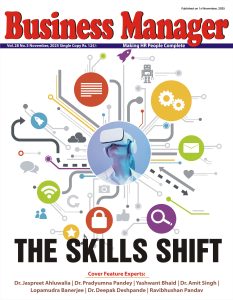Organisations need to mandate that managers spend time understanding the importance of people skills and ensure that they are trained on soft skills and people skills.
ARTICLES
To help managers improve their people skills over time, organisations should cultivate a culture that values ongoing education and candid criticism.
Without strong people skills, managers risk fostering a disengaged workforce, hindering collaboration, and ultimately falling behind in a rapidly changing world. Communication, emotional intelligence, and the ability to connect with others - these are the skills that will empower future leaders to...
The reality is that if people's skills ever become irrelevant, it will be because of the classical line that 'the machines have taken over'. While that remains a theoretical possibility, it does not seem likely shortly!
The very first aspect to help managers sharpen their people skills is for them to understand the value of people management skills and quantify the benefits by highlighting how strong people management skills lead to higher productivity by sharing success stories.
People skill plays a critical role in getting things done effectively, achieving Production targets, and achieving new milestones for the organisation. After a certain level, you can succeed if you have 40% Functional Skills and 60% People Skills.
How important are people skills for managers in their career growth and why do organisations and managers not pay much attention in comparison to functional skills? GB Actual people skills are the only thing that gauges individual career growth. Employee growth only depends on the skill put he/she...
The narrative that began with Sophie's unexpected resignation became a story of growth, resilience, and adaptability. The challenges faced were not swept under the rug but addressed head-on, paving the way for a workplace culture that prioritized both professional and personal well-being.
An ideal employee reward strategy experimenting with various reward methods improves employee well-being and work-life balance. It also creates a high-performing organisation.
Engagement needs differ by generation (by traits), mostly due to different outlooks created because of our overall upbringing and culture, core beliefs, and values installed in us.















